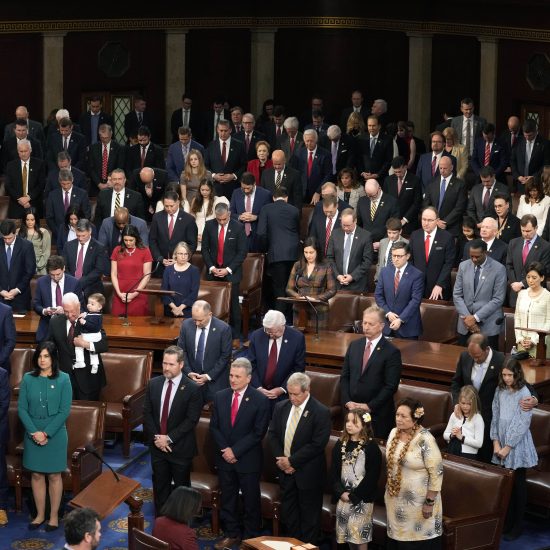
(RNS) — According to the Bible, God has a plan for everything. Including your money.
Yet many church groups rarely talk about your finances outside of yearly stewardship drives. While praying and reading the Bible are considered spiritual disciplines, making a budget is not, said Elizabeth Grady-Harper, executive director of the Boston Faith and Justice Network.
“Which is crazy,” said Grady-Harper, “considering the Bible’s very real preoccupation with money.”
Grady-Harper’s network is one of a number of Christian nonprofits in the United States that teach “economic discipleship” — the idea that money and faith go hand in hand. These groups stress that money is one of the most common topics discussed in the Bible — and one that’s often misunderstood or ignored by faith groups.

(Charles Thompson/Pixabay)
These groups often use the Bible and small gatherings to teach money management techniques and help people become more generous.
The Boston Faith and Justice Network does that with the help of a Bible study called “Lazarus at the Gate.” Based on the parable from the Gospel of Luke — about a rich man who feasted while a poor man suffered outside his gate — the 8-week study asks Christians to live more simply and gratefully in order to be more generous to those in need.
Participants talk about the Bible and money, share personal budgets, and then make a donation to fight poverty. Some decide to give up their daily cup of coffee or to ride their bike to work instead of driving, and give away the savings.
Grady-Harper said it also introduces spiritual discipline and aligns people’s spending with their values.
“The point is to be more generous human beings, so that we can share our resources with people in need,” said Grady-Harper.
Victoria Sechrist, who writes and podcasts about faith and money at ConsumerCatholic.com, said there can often be embarrassment or shame when it comes to finances, especially if people have struggled to make ends meet. Social media, she said, can put pressure on people to keep up appearances.
“They see people on Instagram living these great lives and they assume everyone else is doing better than they are,” said Sechrist, a financial coach who volunteers with Compass Catholic, a nonprofit that teaches “biblical financial principles from an authentically Catholic viewpoint.”
The nonprofit helps Catholics understand both the spiritual and practical sides of managing money, offering Bible studies, budgeting tools and other resources. Having open conversations about finances lends them a realistic view of how they are doing, she said. So can the Christian idea of “stewardship.”
“You pivot from this money is mine, mine, mine and think about it as God’s money, and he has just given me the opportunity to manage and spend and donate,” she said.
Sechrist, whose father was a financial adviser, said she didn’t start thinking much about the connection between money and faith until after she had graduated from college and was out in the working world.
“I just remember I was constantly thinking about money,” she said. “I was chasing dollars and cents more than I was chasing God. I felt like the more I had in my bank account, the more secure I would feel.”
Her savings grew, but her sense of security did not. But she said her faith was growing as well, and she began to think she was putting her trust, if not her cash, in the wrong place.
“If I truly believe we have an all-loving God, why would I put my hope in a dollar?” she said.
That question, she said, led her to Compass Catholic. She eventually started blogging about faith and finances.
“Compass Catholic refers to it as, you’re the CFO of God’s money. Like he’s giving you that title. When you think of it that way, it is really inspiring,” she said.
Chuck Bentley, president of Crown Financial Ministries, in Knoxville, Tennessee, said worries about finances can also control a person’s life, no matter how much the person has.
“There is the fear that I am not going to have enough,” he said. “Then there is the other side of the spectrum — people who have an abundance but they can’t let go of it.”
Faith can give people a set of principles — and some practical tips — to help them take charge of their finances and put their money to work for their values, said Bentley, author of Seven Gray Swans, which considers looming financial threats to the United States economy.
Crown focuses mostly on the big-picture financial ideas from the Bible, especially from the life and teachings of Jesus. Trained volunteer coaches teach clients how to set up a budget and other strategies for handling money or for paying off debt. They also remind people that happiness in life is not determined by money.
“The Bible talks about our ability to lose money and still maintain joy,” he said. “That’s something you don’t often hear about.”
Kathy Laflash thinks about the Bible and money all the time. In her day job, she’s a labor union leader and president of the New England Gas Workers Alliance. She is also an elder at Faith Community Church, a nearly 300-year-old evangelical congregation in her hometown of Hopkinton, Massachusetts.
“My faith is a big part of my job,” said Laflash.
Laflash said the “Lazarus at the Gate” study helped her integrate her faith with her work and her ideas about money, which had been a flashpoint for her and her husband. He is good at handling finances. She is not. They had been through another popular program, from prominent Christian financial adviser Dave Ramsey, but it had not gone well.
“Lazarus at the Gate” brought them closer together by focusing on becoming more generous. Today they think a lot about sustainability and spending — and how generosity can be part of their Christian witness.
“It is more than just writing the check,” she said. “It’s about being aware, being involved, being an advocate.”
Caitlyn Kano, executive director of Compass Catholic Ministries, said that faith can give people both “practical and tactical” tools for managing finances. Those tools can help people transform their lives, she said.
That was the case for the organization’s founders, Jon and Evelyn Bean. The Florida couple was struggling financially when they took a Crown Financial program offered at their Catholic parish in the early ‘80s. Using the principles they learned, the couple paid off their debt and retired early, said Kano. They founded Compass Catholic to share what they learned.
Today about 200 parishes use their materials, which combine Catholic teaching with the nuts and bolts methods developed by Howard Dayton, one of the founders of Crown. Drawing on Bible verses, along with the teachings of saints and popes, the ministry provides an “authentically Catholic” approach to financial wellness — which gives people the tools to manage their money and the inspiration needed to put those tools into practice.
“It is not about the money,” Kano said. “It is about a change of heart.”






